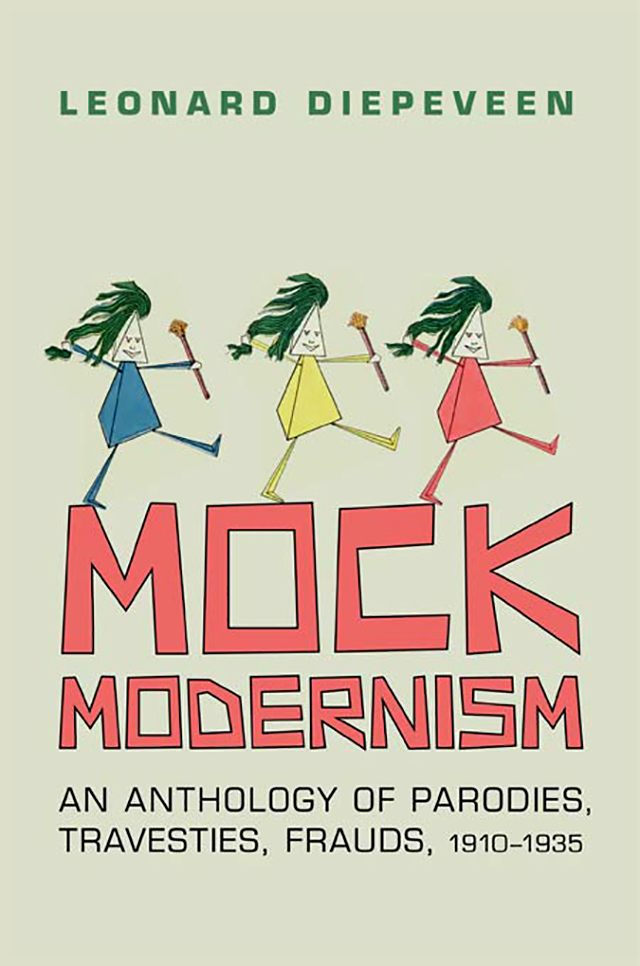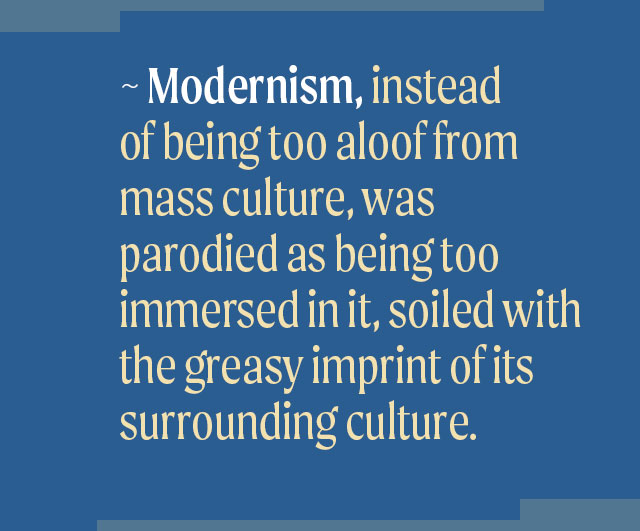

Mock Modernism: An Anthology of Parodies, Travesties, Frauds; 1910-1935. Toronto: University of Toronto Press, 2014.
This parodic response to modernism not only takes in a complex context, it also employs a complex attitude toward that context, often having elements of hostility, homage, and interpretation all rolled into one. The response isn’t just ridicule. The “mock” of my title points to that, “mock” being a term that points to both counterfeit and derision. When one puts the word “mock” in front of a noun, according to the OED, it amounts to “designating a person who or thing which parodies, imitates, or deceptively resembles that which the noun properly denotes.” And, of course, “mock” suggests a certain kind of imitation: “To ridicule by imitation of speech, manner, or behaviour; to parody.” Always, with its disguise, using the appearance of sincerity, mock modernism had complex work to do.
Finally, its chronological frame is important for this project; I have collected the work that was being done while modernism was still fresh, when responses still exhibited the baffled outrage of surprise. These parodies, then, are not the result of looking at an already constructed edifice, but they occur during the moment when the viability of a proposed edifice was in doubt. (Indeed, even what was being proposed was uncertain.) These responses occur at a time when modernism was in the ascendant, but also when it was still under contention, and its properties weren’t all that clear.